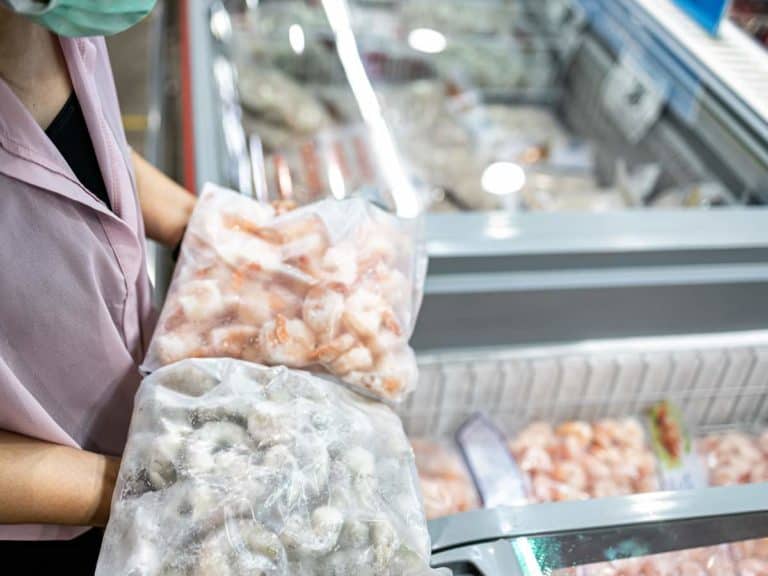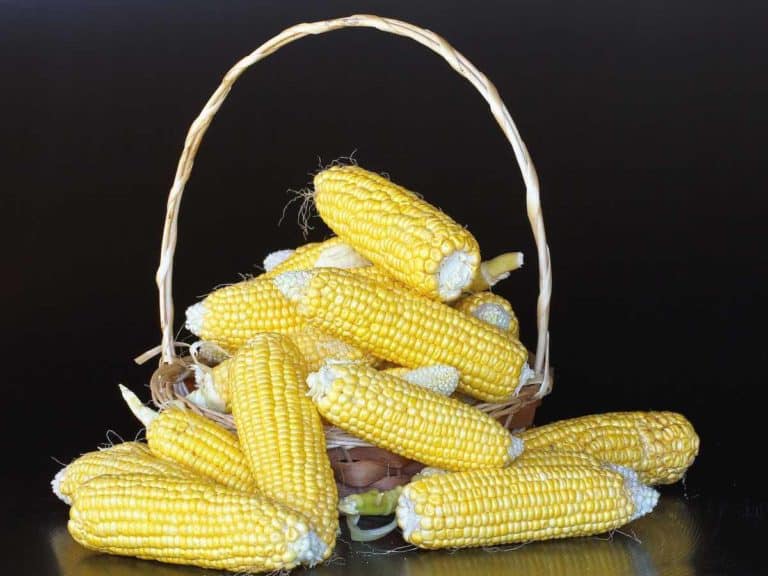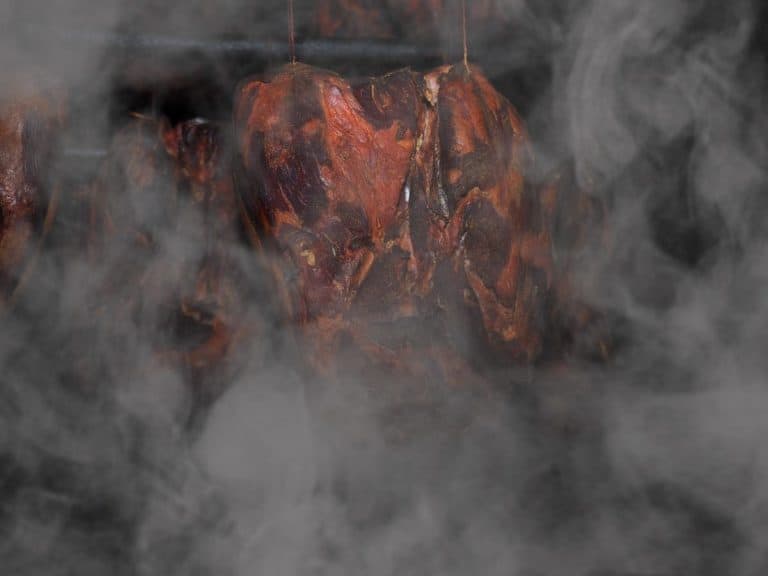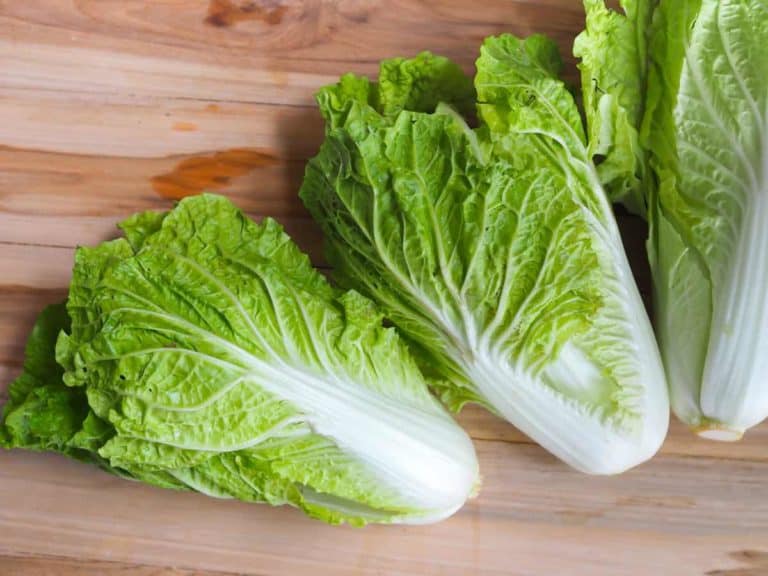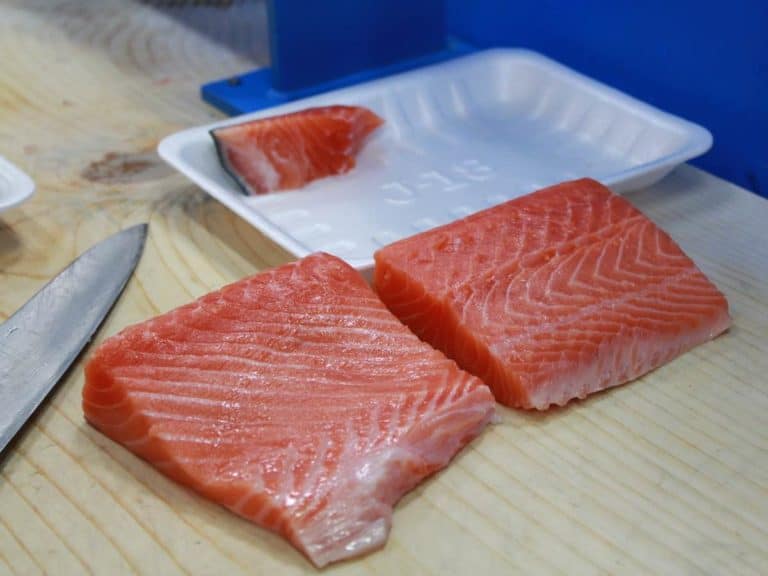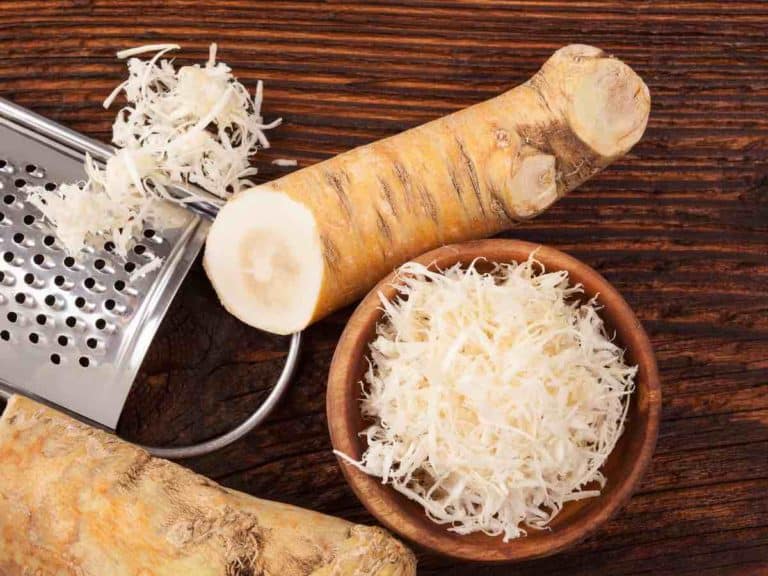What Happens if You Eat Raw Pasta
As weird as it may sound, some of us have probably eaten undercooked or raw pasta. If not us, then someone we know. While pasta can be delicious and safe when cooked it begs the question: Can you eat raw pasta?
Eating raw pasta is potentially harmful. Our body has a hard time digesting raw pasta, so we can’t get many nutrients from it. There is also some risk of food poisoning. If you eat the dried pasta and you don’t chew properly, you can swallow sharp pieces that can damage your digestive tract.
Pasta is easy to cook. You can easily make a lazy pasta dish by boiling it in water and adding a pre-mixed pasta sauce. So try to avoid eating it raw. Here you’ll find out other reasons why you may not want to eat raw pasta.
What Pasta Is Made Of
Pasta is typically made from an unleavened dough of wheat flour.
So it is mostly carbohydrates.
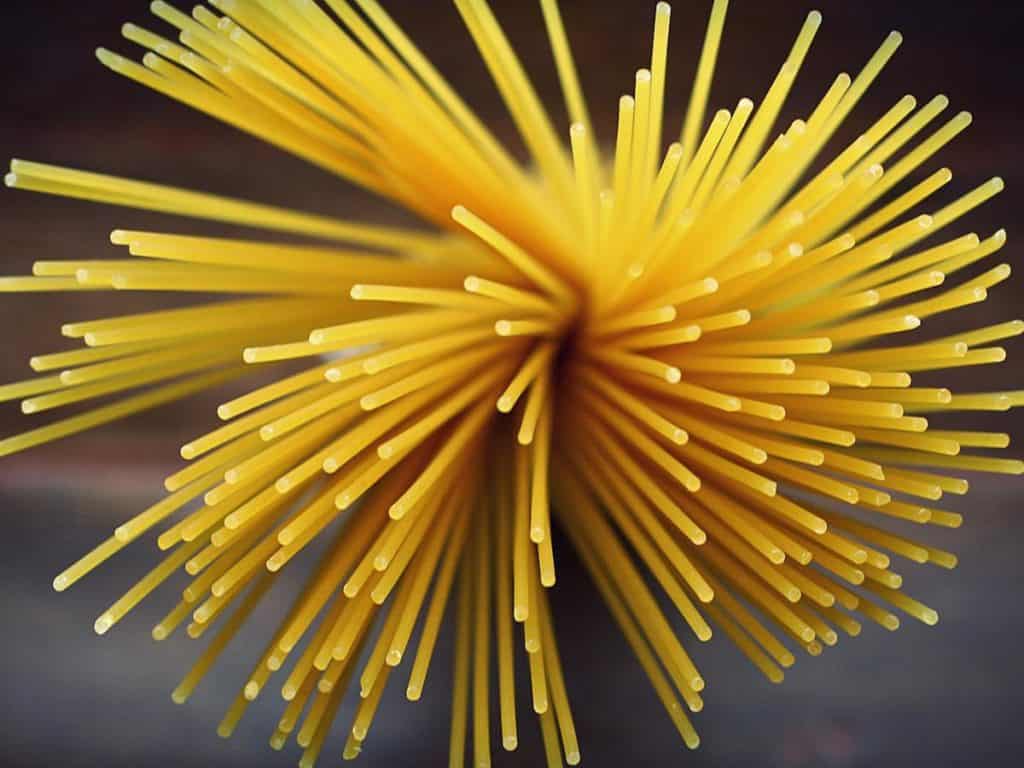
The flour is mixed with water and/or eggs to give it some body. Then the mixture can be molded into different shapes. The pasta you’re familiar with, the kind used for typical Italian dishes, is made from durum wheat. But pasta can also be made from other carbohydrate sources, like barley, rice, and maize.
For simplicity’s sake, let’s stick with pasta made from durum wheat.
You’re probably also familiar with the dried store-bought pasta. Those are made using the same ingredients, but on a larger scale using machines. When the pasta is shaped, they are slowly dried over several days. The end product is the solid crunchy dried pasta we’re familiar with.
Related Article: Can You Eat Raw Oats
Can You Eat Fresh Pasta Raw?
Eating fresh raw pasta would be similar to eating raw cookie dough or cake batter. Fresh raw pasta is essentially dough. The US Centers for Disease Control and Prevention (CDC) have advised to not eat raw dough. Raw flour is usually not treated to remove or kill any bacteria.
The flour and eggs (if there are any) can contain bacteria like E. coli and Salmonella. Plus, the flour can be contaminated anywhere along the way of its production.
E. coli Infection
If you ate raw pasta that has been contaminated with E. coli, you won’t know about it until after 3 or 4 days. That’s how long it usually takes for symptoms of infection to appear. But sometimes symptoms can appear as soon as the day after or as late as 10 days after.
The symptoms include diarrhea (usually bloody), intense stomach cramps, and vomiting. There is also a fever that is usually less than 101 °F (38.5 °C).
Most people get better within 5 to 7 days. Some infections are mild, but others are severe or even life-threatening. If diarrhea lasts for more than 3 days and is accompanied by a fever higher than 101 °F, seek medical attention. If vomiting is also so bad that you can’t keep liquid down, seek medical attention.
Related Article: Is Pasta Good For Building Muscle?
Salmonella Infection
Symptoms of Salmonella infection are like those of an E. coli infection. But the symptoms can show up as soon as 6 hours and as late as 6 days. However, some people don’t even show symptoms for several weeks after infection. The infection can last up to 7 days.
Unfortunately, some people can experience symptoms for several weeks. People usually recover from a Salmonella infection within 4 to 7 days. The use of antibiotics is normally unnecessary.
Antibiotics are usually not needed for most E. coli and Salmonella infections. Antibiotics are only used if the infected person have the following conditions:
- Severe illness
- Weakened immune system, like those with HIV or chemotherapy
- Infants (younger than 12 months)
- Older adults with medical conditions, like heart disease
Related Article: Does Freezing Kill Salmonella?
Eating Dried Raw Pasta
You also won’t want to eat dried raw pasta for different reasons.
Bacterial Infection
Eating raw dried pasta doesn’t have the same risks of bacterial infection as fresh raw pasta. The moisture content of dried pasta is very low. Bacteria like E. coli and Salmonella have next to zero chance of surviving in it.
But if the pasta has been exposed to some moisture, then it can carry some bacteria. For example, some leftover dried pasta may not have been properly stored. Moisture can thus get in. Hence, the risk of bacterial infection from eating dried raw pasta is low, but it isn’t zero.
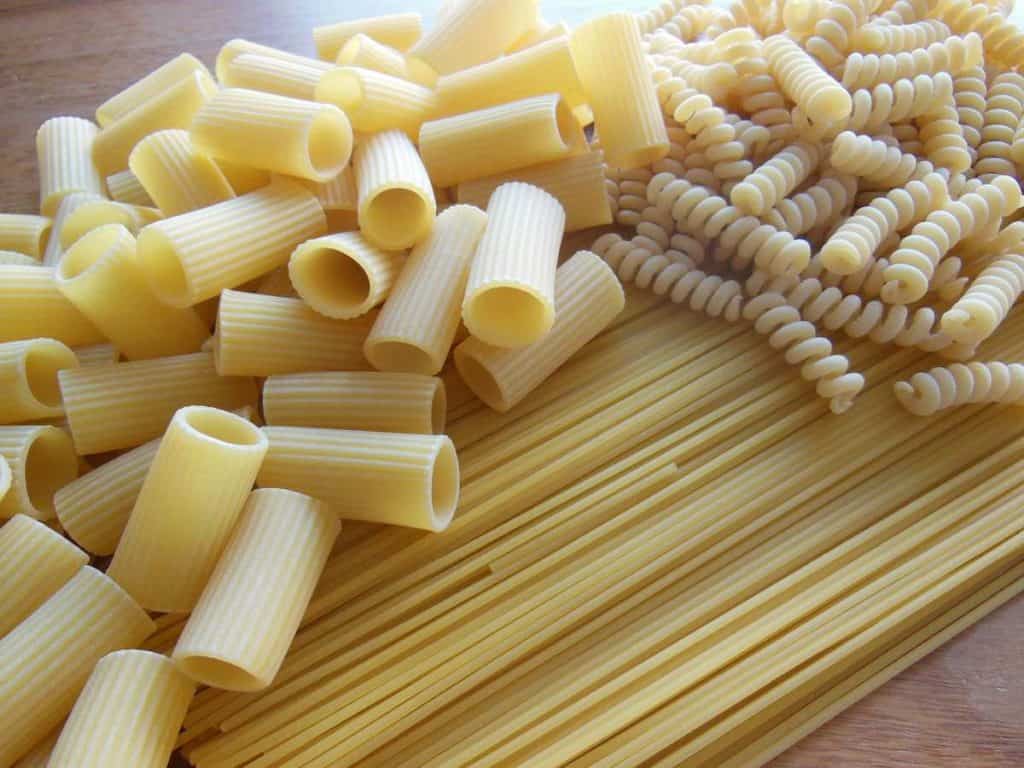
Can You Eat Raw Hard Pasta?
Raw hard dried pasta is tough. The tough texture can be bad on your teeth. Excessively eating raw dried pasta can eventually damage your teeth, like the enamel. If you eat dried raw pasta and don’t chew properly, you might swallow pieces with sharp edges and pointy ends. Those might pierce you anywhere in your digestive tract.
Inadequate Nutrition
Lectins are proteins found in many foods, especially legumes and grains. Thus, lectins can be found on pasta. There are different types of lectins. Some can bind on the walls of our digestive system and cause problems.
Some people experience abdominal pain, vomiting, and diarrhea. Some people even report auto-immune problems. Milder side effects of eating lectins include bloating and gas. Since lectins can bind to the walls of our digestive system, they can block mineral absorption. Some of the minerals that lectins can block are calcium, iron, phosphorus, and zinc.
If you experience bad effects from eating lectins, you might have similar experiences from eating raw pasta. However, the good news is lectins can be deactivated by proper cooking.
Phytates or phytic acid is another substance found on grains. Like lectins, they can bind to the walls of our digestive system. Hence, they can interfere with the absorption of minerals, like iron and zinc. However, the bad effects seem to only happen if you eat excessive amounts of phytates.
There are also studies that show phytates are associated with health benefits. Some studies link phytates to lower cholesterol and lower blood sugar spikes.
Like with eating lectins, you might experience similar effects from eating raw pasta. However, you can also avoid these bad effects by cooking pasta.
Related Article: Can You Eat Raw Zucchini Noodles?
Related Questions
Can you get worms from eating raw pasta?
It is unlikely that raw pasta has parasites like worms. The parasites we are concerned with live off other animals. Thus, these parasites cannot survive on pasta, which is made from plants. Raw meats are usually the carriers of parasites like tapeworms and roundworms
What is uncooked pasta called?
The culinary term for slightly undercooked pasta is “molto al dente”. “Al dente” comes from an Italian phrase that translates as “to the tooth.” Molto al dente is pleasantly chewy, making the experience more enjoyable. If you bite into the pasta, you’ll see a chalky, gritty quality to the middle.
